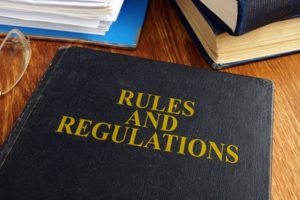 In the world of betting, the idea of insider betting is a lot like insider trading: those with knowledge that others don’t have shouldn’t use that to make themselves money. It’s a difficult thing to draw a line under, however, on account of the fact that it’s not always easy to know what the knowledge that someone has is considered to be knowledge only afforded to an ‘insider’.
In the world of betting, the idea of insider betting is a lot like insider trading: those with knowledge that others don’t have shouldn’t use that to make themselves money. It’s a difficult thing to draw a line under, however, on account of the fact that it’s not always easy to know what the knowledge that someone has is considered to be knowledge only afforded to an ‘insider’.
Obviously the betting industry has put rules in place in order to stop those with insider knowledge from taking advantage of what they know, but that doesn’t always mean that those rules are followed. The tricky thing is knowing where the line is to be drawn and the difference between active insider betting and just happening to have some knowledge that others don’t.
Insider Betting Explained
 The best way of explaining insider betting is to think of it as knowledge that isn’t in the public domain. If you’re friends with a footballer, say, or related to a tennis player, there’s a chance that you’ll be able to gain information that Joe and Jane Bloggs who work in the local supermarket aren’t privy to. If it’s something not everyone knows, you shouldn’t take advantage of it.
The best way of explaining insider betting is to think of it as knowledge that isn’t in the public domain. If you’re friends with a footballer, say, or related to a tennis player, there’s a chance that you’ll be able to gain information that Joe and Jane Bloggs who work in the local supermarket aren’t privy to. If it’s something not everyone knows, you shouldn’t take advantage of it.
The body responsible for the governance of the betting industry, the United Kingdom Gambling Commission, is quite specific in terms of what it considers to be a misuse of information. The key approach that they take is to just each occurrence on its individual merits, rather than just using sweeping rulings for any and all cases of insider betting.
 The UKGC’s rules on insider betting are as follows:
The UKGC’s rules on insider betting are as follows:
- Someone who is participating in, or likely to participate in, an event
- A performance within a live event that can influence said event’s outcome
- A performance in an event that exists within an event, such as In-Play betting
- An activity that a bet can be placed on, even if it is not a sporting activity
The above points as laid out by the Gambling Commission relate to information that is not available to the public, therefore making it privileged. The likes of someone knowing that a team or a player won’t play in a game or won’t be able to play to the level expected would be classed under this system. This includes the likes of a player suffering from an injury, for example.
You’ll note that the list also makes reference to non-sporting events, which is in order to cover the likes of reality television contestants or political machinations. The UKGC encourages betting companies to disrupt bettors from misusing information that they’ve come across that others are not privy to wherever and whenever possible.
The UKGC Has A Spectrum
| What It Is | What That Means | Does It Class As Insider Betting? | Are There Concerns? What Are They? |
|---|---|---|---|
| The Art Of Betting | Information that is available to everyone that is willing to do some research | No | No |
| Uninformed Information | A tip given by someone, or something overheard. In this case, the receiver of the information doesn’t know that the person telling them has privileged information | No | No |
| Informed Information | The person being given information is aware of the fact that the information they’ve been given isn’t available to everyone so shouldn’t be used for financial gain | Yes | Yes. The guilty party will likely be referred to the likes of the SGB |
| Restricted Information | Information obtained in this category has been done so because the person placing the bet or giving said information to someone else is involved in the thing that the bet is being placed on. This includes the likes of club employees or agents | Yes | Yes. The UKGC would want to void the bet if possible and ensure that the guilty party is sanction through their own governing body |
| Criminality Or Malfunction | This involves someone in the know betting on a person’s career, such as family members, or someone knowing how something works or is malfunctioning and making money from it as a result | Yes | Yes. The UKGC Would almost certainly refer those involved to their employer or the governing body of their activity |
| Manipulating An Event | A player or person involved in something actively manipulates the outcome of an event in order to make a financial gain. The likes of match-fixing or spot betting would be included in this category | Yes | Yes. This is a serious matter that would be referred to the governing body of the sport, the employer and even possibly the police |
The reality is that nothing in the world of insider betting is simple and easy to understand. It’s difficult to know where the line should be drawn, which is why the United Kingdom Gambling Commission has a spectrum when it comes to the misuse of information by bettors.
It helps to at least give us some idea of where the various things people can do fit in the regulator’s thinking. The table above shows how the industry’s governing body considers various forms of information.
As you can see from the table, there are numerous different levels involved in insider betting that the UKGC has to consider before they make a judgement call on the person or people involved. A player might tell family that they’ve picked up an injury, for example, but be unaware that said family member is using that information to make bets. Are they responsible for what has happened?
Whilst it’s easy to sit in judgement of those involved and feel as though everything is punishable if the person involved had information that you personally wouldn’t have, it’s not that simple for the Gambling Commission to decide what to do. Everything needs to be judged on a case by case basis, ensuring that a fair and correct punishment is meted out when it’s needed.
Muddied Waters
 A good example of a moral conundrum when it comes to insider betting is someone that works at a bookmakers. The vast majority of bookies will not allow their employers to place bets with them, but it’s OK for the person to place a bet with a different bookmaker. Why is it OK for those people to bet with a different company but not the one that they actually work for?
A good example of a moral conundrum when it comes to insider betting is someone that works at a bookmakers. The vast majority of bookies will not allow their employers to place bets with them, but it’s OK for the person to place a bet with a different bookmaker. Why is it OK for those people to bet with a different company but not the one that they actually work for?
Is the implication not that the people have information that isn’t fair for them to have when placing a bet if a company won’t let them place said wager with them? Should other bookmakers be willing to take their bets, in that case? Worse, should they be allowed to bet against other people on the likes of the betting exchanges, if they have information that isn’t readily available?
The fact that bookies don’t allow their workers to bet with them but also don’t put an industry-wide ban on betting suggests that it’s not as clear cut as we might like it to be. It might seem to us as though those people have insider knowledge, but it might just be that bookmakers want to protect themselves from losing money to people who know the industry better than most.
Another grey area comes in the form of tipsters. Most of us will have encountered them at some point, offering to send you tips on horses or other sporting events in exchange for money. Are they actually people with insider information, as they claim, or are they just con artists looking to make money from people that want to believe them and get rich quick?
The answer, of course, lies somewhere in the middle. There are doubtless more than a few disreputable people who are willing to give insider information in order to earn some extra money. Equally, there are a good number of people who just want to earn a quick buck and know that offering ‘tips’ is an easy way to do so, with relatively few wins needed to convince people.
On the whole, though, tipsters are just people that have made gambling into their career and do a whole host of research in order to have a decent hit rate on something like horse racing. In some instances they’ll have been so successful at gambling that bookmakers have either limited or shut down their accounts, meaning that they can’t make money from betting any more.
In that instance, they will turn their hand to being a ‘tipster’ in order to make money where gambling is no longer a viable option. The thing to be careful of is that they will often promote ‘tips’ that they gave using false odds. They’ll say that they tipped Horse X and that the horse had odds of 25/1, say, but the truth is that the 25/1 odds were at some point, not necessarily when the tip was made.
As always, the best thing to do is to be careful and to do your own research. There’s nothing wrong with using a tipster service if they’re making you more money than you’re spending on their cost. The key thing as far as this article is concerned is to be wary of any tipster that suggests that they’ve got insider information. If it’s true then you’re probably breaking the law by accepting it.
Real World Examples
The best way of explaining insider betting is by offering you some real world examples of it happening in the past:
Daniel Sturridge
 Let’s start by looking at the example of Daniel Sturridge, the former Liverpool forward. He was banned from playing football for an initial period of two weeks and fined £75,000 after he was found guilty of breaching rules around insider betting. The ban was later extended to four months, whilst his fine was doubled to £150,000.
Let’s start by looking at the example of Daniel Sturridge, the former Liverpool forward. He was banned from playing football for an initial period of two weeks and fined £75,000 after he was found guilty of breaching rules around insider betting. The ban was later extended to four months, whilst his fine was doubled to £150,000.
An independent panel looked at charges put forward against Sturridge that alleged that he had passed on insider information about a transfer from Liverpool in January of 2018. It was alleged by the Football Association that Daniel Sturridge had told his brother Leon to bet on him making a transfer to the La Liga side Sevilla, though the transfer never actually happened.
Sturridge’s brother used betting industry contacts to discover the best odds, whilst his dad liaised with his cousin in order to place the bets. 28 different people wagered a total of £13,755.82, including the neighbours of Daniel Sturridge’s parents. Bookmakers rejected a further £20,560 worth of bets, which would have returned £317,006.
Betting On Transfers
 Unlike Daniel Sturridge, whose name was shared widely in the press when news of his own betting scandal broke, the player involved in this story remained anonymous. What we do know is that the person involved was an England player at some level. The story came to light after a betting industry insider revealed the level of wagering by Premier League players.
Unlike Daniel Sturridge, whose name was shared widely in the press when news of his own betting scandal broke, the player involved in this story remained anonymous. What we do know is that the person involved was an England player at some level. The story came to light after a betting industry insider revealed the level of wagering by Premier League players.
With account managers offering players incentives like invites to Formula 1 events and horse races, one England star placed a bet of £500 on his own transfer to a Premier League club, from which he stood to win £5,000 if it came off. In the end, however, the player was sussed and the bet was made void, meaning that he won nothing.
It’s worth nothing that not all bets by footballers are successful ones. The likes of Mathew Etherington lost £1.5 million due to his own gambling addiction. As with Sturridge’s brother losing his bet on the forward moving to Sevilla, not all bets made by those with insider knowledge are guaranteed to succeed, even if the UKGC still clamps down on them.
Phone Polls For Reality TV
 It’s not just sporting stars that can be guilty of insider betting. There is perhaps no better example of the phenomenon than the betting that took place on reality TV shows such as I’m A Celebrity…Get Me Out Of Here, The X Factor and Strictly Come Dancing. It was a scandal back in 2005, which came about because the public was being given the responsibility of making final decisions on contestants.
It’s not just sporting stars that can be guilty of insider betting. There is perhaps no better example of the phenomenon than the betting that took place on reality TV shows such as I’m A Celebrity…Get Me Out Of Here, The X Factor and Strictly Come Dancing. It was a scandal back in 2005, which came about because the public was being given the responsibility of making final decisions on contestants.
A betting ring was in a position to make bets of tens of thousands of pounds because they were being given crucial information ahead of time. It was believed that someone working for British Telecom was feeding them proprietary information, with BT responsible for running the phone polls for the TV programmes concerned. Those involved claimed that they were just ‘lucky’.
A similar scandal took place around The X Factor in 2011, this time involving workers for Virgin. Rather than placing bets with traditional bookmakers, the workers used their insider information to take money from fellow bettors on Betfair’s betting exchange. Though there didn’t alter the outcome of the event, they did make money from others unfairly.
